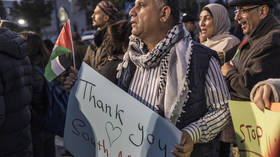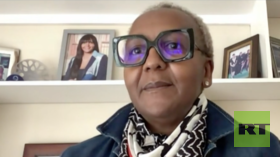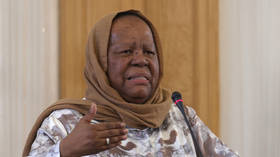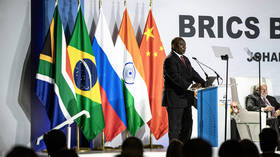The ghosts of apartheid triggered South Africa’s case against Israel in The Hague
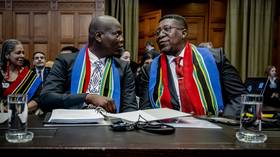
South Africa’s decision to take Israel to the International Court of Justice (ICJ) on genocide allegations has received overwhelming praise in the country, with parallels being drawn to the country’s own historic fight against apartheid.
The case is widely regarded as doing more for the country in terms of global public opinion than probably any other international issue since former president Nelson Mandela’s presidency.
The international court’s ruling
The interim ruling of the ICJ earlier this year saw a panel of 17 judges pass seven emergency measures requested by Pretoria.
In addition to demanding that Israel refrain from committing genocide, the panel of judges ordered Israel to take action against its soldiers who commit genocidal acts, as well as state officials who publicly call for the genocide of Palestinians. The ruling also stated that Israel must preserve evidence of any such acts that have been committed.
Israeli Prime Minister Benjamin Netanyahu was critical of the court’s decision, describing it as false and outrageous, and he maintained that his country was exercising its basic right to defend itself.
In a separate case before the ICJ, South Africa joined more than 50 states and three international organizations for public hearings at the request for an advisory opinion on Israel’s decades-long occupation of Palestinian territories.
“Racism must be opposed”
The comparison of South Africa’s petition to the ICJ and the humanitarian efforts of its former president and global icon Nelson Mandela are unsurprising. Yet, before the ruling, the country had found itself in the global spotlight for the wrong reasons.
Far from being an economic powerhouse on the continent, years of corruption have seen confidence dwindle, especially as the country struggled to deliver an efficient electricity supply to homes and business, and as key state owned entities, including its ports, suffered due to mismanagement and inefficiency.
It seems that the ICJ’s ruling has re-galvanized the country and fostered belief that it still has a prominent role to play in championing the rights of the oppressed, while reinforcing its commitment to justice and international law.
Mandela in 1990, just months after he was released from prison by the Apartheid government, addressed the United Nations Special Committee in a speech against Apartheid in New York.
“We hold it as an inviolable principle that racism must be opposed by all the means that humanity has at its disposal. Wherever it occurs it has the potential to result in a systematic and comprehensive denial of human rights to those who are discriminated against. This is because all racism is inherently a challenge to human rights, because it denies the view that every human being is a person of equal worth with any other, because it treats entire peoples as sub-human.
“This is why it was correct to characterize the Apartheid system as a crime against humanity and appropriate that the international community should decide that it should be suppressed and punishment meted out against its perpetrators.”
It is with these principles in mind that President Cyril Ramaphosa addressed the country in a televised speech after the international court ruling, celebrating what he termed an unprecedented action taking Israel to the ICJ.
“After more than half a century of occupation, dispossession, oppression and apartheid, the Palestinian people’s cries for justice have been heeded by an eminent organ of the United Nations.”
He said the court had acknowledged the catastrophic humanitarian situation in Gaza and how the conflict had led to hundreds and thousands of Gazans being deprived of fuel, food, medical supplies and electricity.
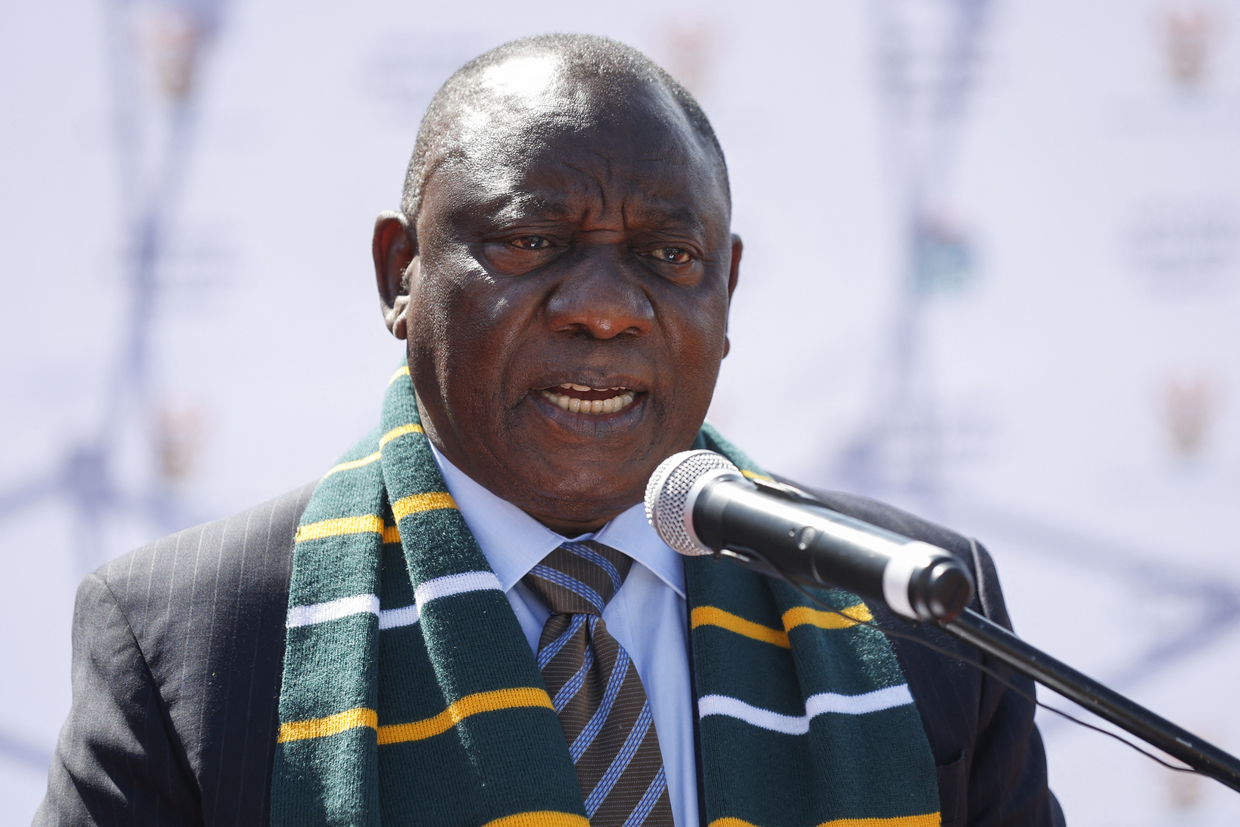
Keffiyeh for Arafat and Mandela
Mandela had been imprisoned by the Apartheid government for 27 years as a political prisoner before his eventual release on February 11, 1990. Some 16 days later, Mandela landed in Lusaka, Zambia and was embraced by Yasser Arafat, the leader of the Palestine Liberation Organization (PLO), with his trademark keffiyeh wrapped around his head.
The keffiyeh has long been a symbol of Palestinian nationalism, and Mandela reciprocated the support of Arafat and the PLO in the fight against apartheid by donning his own keffiyeh three months later when he attended a meeting organized in his honor by the National Union of Algerian Youths.
Mandela felt a special bond with the Palestinian people and in 1997 said: “We know too well that our freedom is incomplete without the freedom of the Palestinians.”
When Arafat passed away in 2004, Mandela said: “He was an icon in the proper sense of the word. He was not only concerned with the liberation of the Arab people but of all the oppressed people throughout the world – Arabs and non-Arabs – and to lose a man of that stature and thinking is a great blow to all those who are fighting against oppression.”
Mandela passed away in 2013 and the people of Palestine reciprocated his support by unveiling a statue in his honor in the occupied West Bank city of Ramallah.
Mandela was acutely aware of the support his party, the African National Congress (ANC), the oldest liberation movement on the continent, received when it was a banned organization – countries including Russia, Cuba, China and India and African countries like Zambia, Zimbabwe and Mozambique were unwavering in their support against Apartheid. The Western countries were generally not supportive of the liberation struggle in South Africa, with the exception of Sweden and Norway.
In 1990, Mandela was invited to the US by President George Bush and, at a town hall meeting chaired by ABC News’s Ted Koppel, he was questioned about his support for Palestine.
Mandela responded by saying: “The support for Yasser Arafat in his struggle does not mean that the ANC has ever doubted the right of Israel to exist as a state, legally. We have stood quite openly and firmly for the right of that state to exist within secure borders. But, of course … We carefully define what we mean by secure borders. We do not mean that Israel has the right to retain the territories they conquered from the Arab world, like the Gaza Strip, the Golan Heights and the West Bank. We don’t agree with that. Those territories should be returned to the Arab people.”
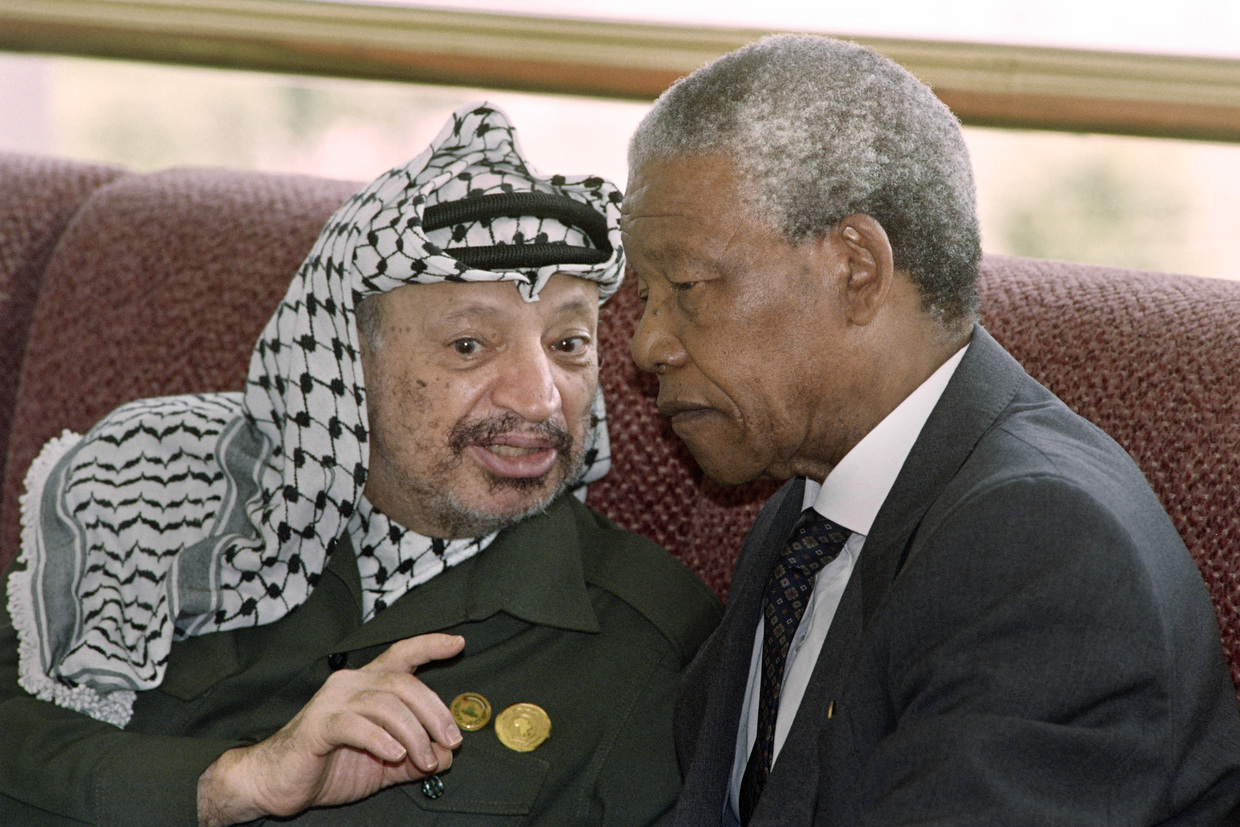
Not just speak, but act
Lesego Masisi, an activist and a final-year law student at a South African university, told RT that South Africa had a moral obligation in the global political realm to speak out against what was happening in Gaza because of its own history of fighting an oppressive regime – a fight which was largely ignored by the West.
“If South Africa did not speak out about the humanitarian crisis taking place in Palestine, it would have raised many questions about the country’s integrity,” he said.
Masisi believes the country’s foreign policy was still rooted and influenced by the platform laid by Mandela in the 1990s and early 2000s.
“Mandela always sought to take the moral high ground on geopolitical issues and through his affiliations.
“With issues in Palestine, he realized that it was similar to what the country experienced with the Apartheid regime and many countries were treating the issue similar to how the oppression in South Africa was viewed.”
Lesego Masisi said he believes that South Africa disappeared from the international spotlight after Mandela passed away in 2013 because it appeared to lack direction, especially when taking a strong stand in international relations.
“For South Africa to take a stand against Israel at a United Nations platform like the ICJ – which could have been seen as almost impossible, given the power dynamics in the world – was a bold move by the country’s government.
“There was pressure on the government from civil society and progressive political parties to not just speak out against what is happening in the conflict but to also act,” Masisi said.
He said the conflict had become a human rights issue that was viewed differently by countries in the global north and south.
“The conflict exposes imperialistic tendencies and reveals how countries that are not familiar with being exploited, but who benefited from this historically, were being contradictory in the international space.
“Some countries have not recognized the humanitarian crisis in Palestine because they base their perceptions on skin color, economic resources and their own common interests.”
He said the conflict had exposed the contradictions and hypocrisy of the West in advancing global peace and security.
In the wake of the ICJ decision, South Africa has received support from African countries and others in the Global South but there have been almost immediate repercussions for the country on the international front, especially from countries in the West.
Repercussions on the international stage
A US Congress Bill tabled in the House of Representatives has called for a full review of relations between Washington and Pretoria, accusing South Africa of being aligned with Hamas, Beijing, Moscow, and Tehran.
The Bill, which could impact on South Africa in terms of business, aid, and geopolitics, especially regarding the Russia-Ukraine conflict, was proposed on February 6 by Congressmen John James and Jared Moskowitz, who are from the Republican and Democratic Parties, respectively.
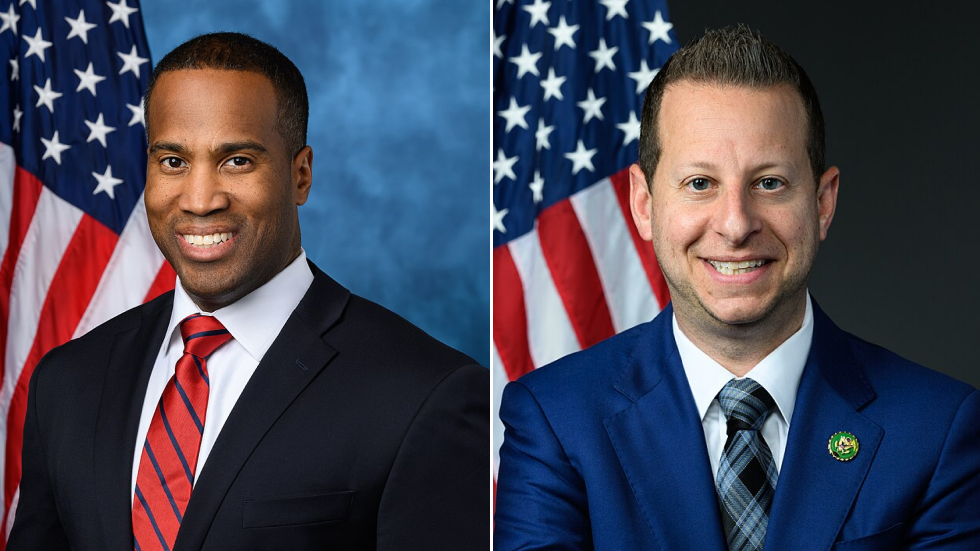
The Bill calls on US President Joe Biden to make an unclassified determination of the act being enacted, if Pretoria has engaged in activities that undermine US national security or foreign policy interests.
President Ramaphosa’s office said it would be “very unfortunate” for relations between South Africa and the US if this bill succeeds.
The presidency said the argument that South Africa’s case before the ICJ was politically motivated does not hold water because the judgment accepted many of South Africa’s recommendations.
Regarding the Russia-Ukraine conflict, it said that South Africa has “always” been on the side of peace.
Anti-Apartheid activist Reverend Frank Chikane told RT that it would be surprising if any government used South Africa approaching the ICJ – an instrument of the United Nations – to punish the country in the international arena.
“This would send a message that a UN body like the ICJ is only to be used against the weak in society and that cannot be the basis in which the world is grounded.
“To say ‘if you differ, we will punish you’ or ‘if we trade with you, we will punish you’ is not the best way to manage foreign policy.”
Chikane said South Africa had experienced many changes since it achieved democracy in 1994, but the one constant was its stance on foreign policy.
“The only exception was when South Africa voted with some in the UN Security Council to intervene in Libya and look at the situation in that country now.”
He believes South Africa’s stance on international relations was based on its own experiences when ‘America and Britain tacitly supported the Apartheid state.’
“It took a lot of effort in the United States, where we mobilized people, and the US Congress ended up adopting a resolution supporting the calls for Apartheid to be ended,” Chikane concluded.
